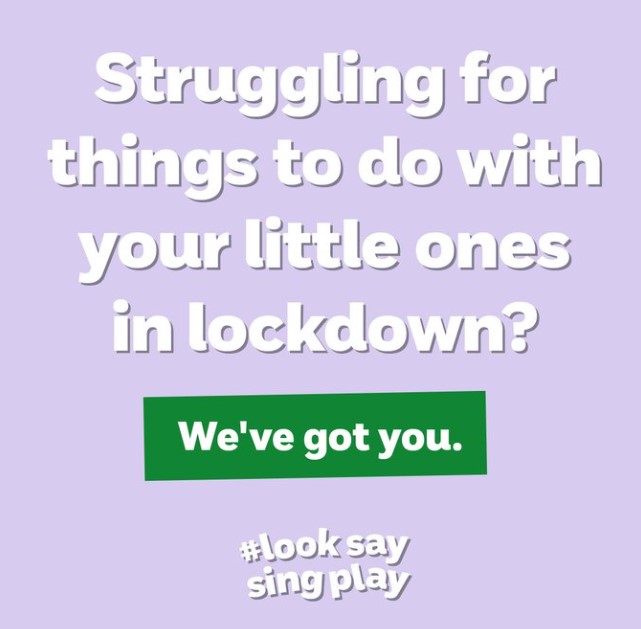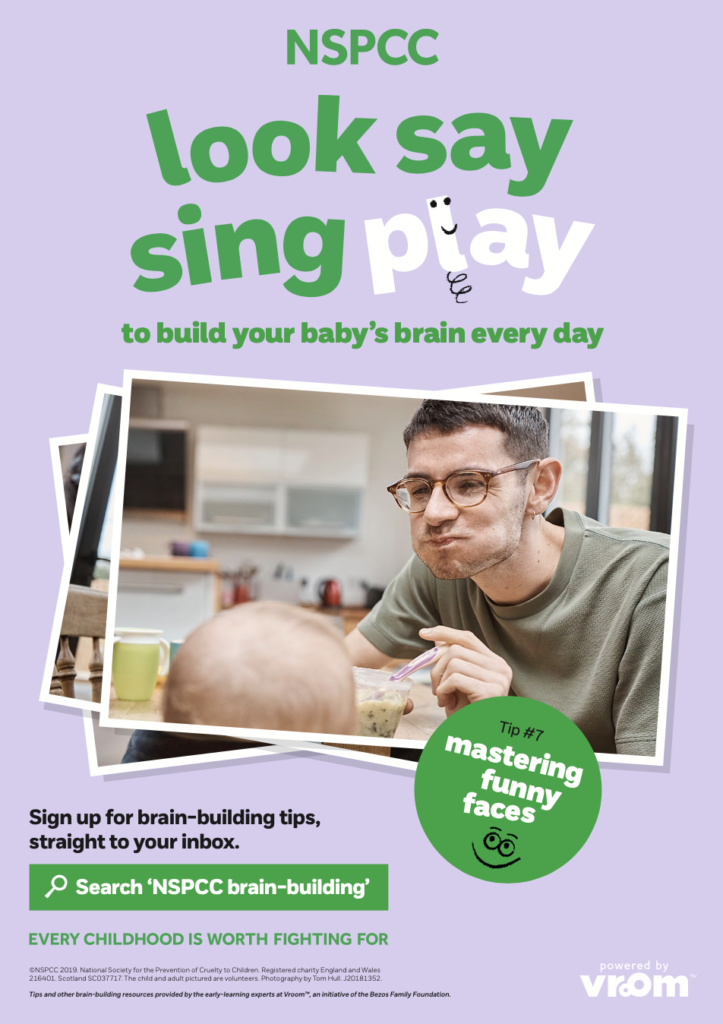First-time mums have been sharing their experiences of parenthood during the pandemic as part of a newbrain-building campaign called Look Say Sing Play being launched in Cardiff and The Vale of Glamorgan to help parents support their baby’s development. Here, Emma Motherwell from the NSPCC explains the science behind the campaign.
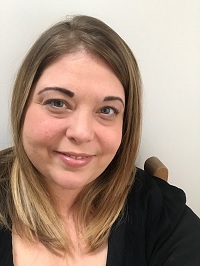
Parents have faced a huge amount of time over the last 14 months with disruption to baby groups, soft play and access to playgrounds. Many we’ve spoken with have been left wondering the long-term impact this, and the reduced interaction with family and friends, will have had on their baby.
‘It’s great having a baby and really fun, but it’s such hard work. We haven’t had a support bubble or anything, just my husband and I, Shepherd hasn’t even met any of my family yet so that’s been tough. I think things like not being able to have coffee mornings or baby classes has been really hard.’ – Helen from the Vale of Glamorgan is mum to 19-week-old Shepherd
At the NSPCC, our research shows how many parents and expectant parents are unaware that the interactions with their new baby in moments such as playing, singing or story time can be brain-building ones. Right from birth, every time a parent talks, sings and plays with their baby they aren’t just bonding – they’re helping to build their baby’s brain.
To help reassure parents and increase their confidence, at a time when the pandemic has placed additional pressures on families, NSPCC Cymru/Wales is launching its Look Say Sing Play campaign in partnership with Cardiff Council, The Vale of Glamorgan Council, Cardiff and Vale University Health Board,and Cymraeg for Kids project.
The baby brain-building campaign highlights to parents how their interactions with their new baby in every day moments can help with their development. Parents are encouraged to take a look at what their baby is focusing on and how they react, say what they are doing and copy the sounds their baby makes, sing along to their favourite tune or play simple games and see what their baby enjoys.
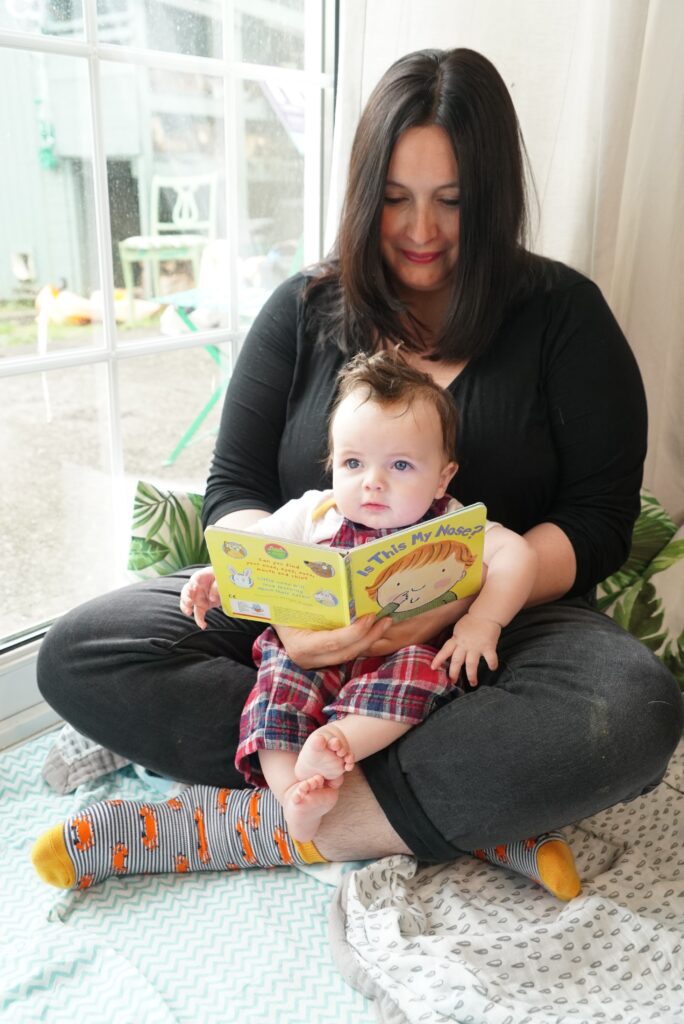
As the science of early brain development tells us, a child’s brain makes one million neural connections every single second and the back and forth- or serve and return- interactions encouraged via Look Say Sing Play help develop the building blocks of early brain development. These positive and supportive experiences with parents and carers help children learn how to control their emotions, cope with stress and learn new skills that serve as a foundation for later life.
Families have been piloting the campaign’s tips and activities and they’ve reported a change in their baby’s development and their own confidence as parents.
‘For me there were some activities we hadn’t ever done before, there were some that we had done in singing and sign language classes, and there are some that you just naturally do. It was just clarifying you’re doing the right thing and what language to use as well with your baby and seeing what their reaction is too, which is really interesting. We fit the activities into our daily routine, so the activity around different emotions we’ll do when he’s in the bath if he’s getting a bit angsty. We’ve been doing the activities for a few weeks and it’s interesting to see how much he had progressed too, with skills such as grip and eye-contact.’ – Rebecca from Caerphilly is mum to six-month-old Owen
‘The science explaining how each activity is going to help his brain development or personal development was really reassuring and has definitely made me more confident playing with him. I would definitely recommend it. I think when you are a new parent a lot of things seem quite big and scary and new, but I think it’s reassuring that this is all very straightforward, there’s nothing complicated – you don’t have to be good at singing or anything. One of the things we learnt was a song where you have to smile at them and then do a sad face, and then do a sleepy face, and then something noisy. Knowing that that is actually developing his personal skills and increasing his emotional intelligence, that has really stuck in my head. I love learning that sort of thing and the more of that I know the more I am enjoying it.’ – Helen
We recently shared Look Say Sing Play with dozens of early years practitioners and health visitors across Cardiff and The Vale and the response so far has been fantastic. We hope our Look Say Sing Play campaign will help parents bond with their children and reassure them by sharing the science behind it. The tips are all about the fun you can have with what’s lying around the house, rather than creating an extra expense or adding to the list of things parents already have to do.
‘Look Say Sing Play is such a simple approach that parents I’ve worked with really responded well to. It’s great to talk to them about activities they can do easily, without the need for expensive toys, and help them understand how all the little things they do are building their baby’s brain. I’m looking forward to using this approach with more families and would highly recommend it to others.’ – Kathryn, a health visitor working in Cardiff
‘It’s great, because it’s so accessible for all families no matter their budget. The response has been really good from families both virtually and during home visits. With the home visit that I did the mum was actually quite surprised because her little boy usually flits between activities quite a lot and she was really surprised with how long he sat at that activity and engaged with it. One of the benefits of it is how simple it is. Sometimes with sessions we may have to take a big bag of various activities, whereas Look Say Sing Play is really simple and very effective.’ – Abigail Atkinson, an Early Years Practitioner for The Vale of Glamorgan Flying Start
‘Look Say Sing Play is a really useful tool we can use to talk about development, bonding, family relationships and having fun. It’s an easy way for families to support their baby’s development and have these lovely experiences with their children and it’s really easy to fit in our Flying Start programme. I think it’s been really beneficial and I’m definitely going to keep using it. There are so many lovely ways we can promote and role this out to our families and we’ve had some really positive responses from health professionals and families.’ – Donna, a health visitor for Cardiff Flying Start
Parents can sign-up to get weekly Look Say Sing Play tips via the NSPCC website. Each one will include a fun, age-appropriate tip which they can easily fit in to their daily routine.
Examples of the Look Say Sing Play activities
Eye gazing – take a few minutes and look into your child’s eyes. As they look back, smile and talk with them. Do what they do. If they blink, you blink. If they look left, you look left.
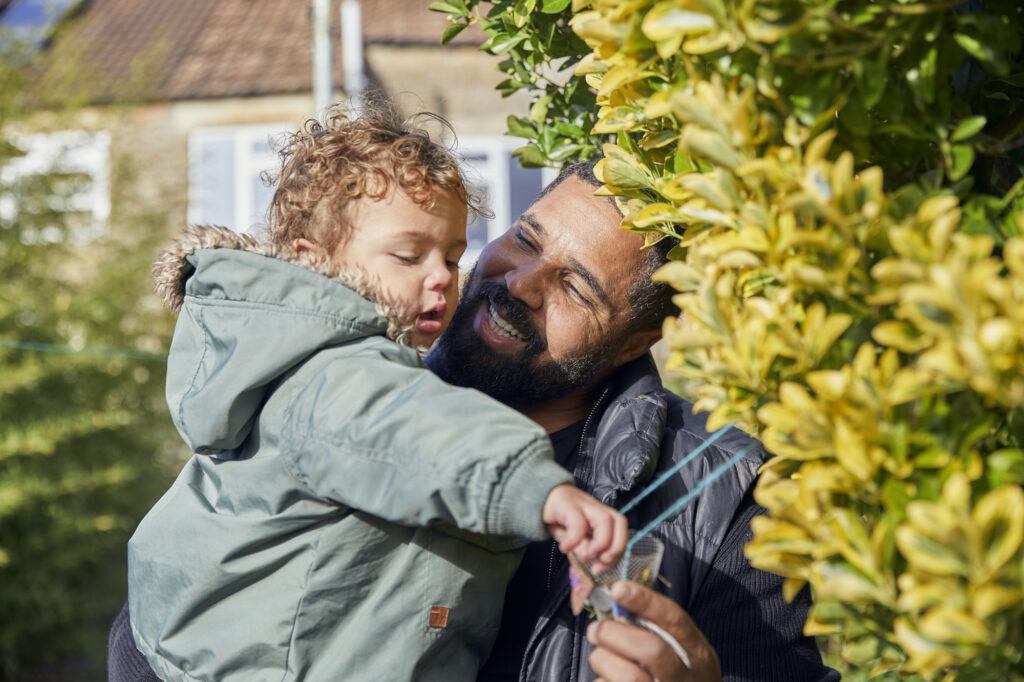
The science bit – When your child looks at you, and you respond, they’re making new connections in their brain. When you look at each other and react to each other, the bond you have is growing stronger.
Silly suds – tell your child “let’s wash your hands” but start washing their feet. What do they do? Then say “Oh! Those are your feet. Where are your hands?” As they get older, have them lead, using other parts of their body like elbows, wrists and ankles.
The science bit – your child is using their focus to listen to your words and drawing on what they already know to play this silly game with you, which will strengthen their memory. They’re also practicing thinking flexibly about opposites, as well as learning new words and what they mean in a fun way.
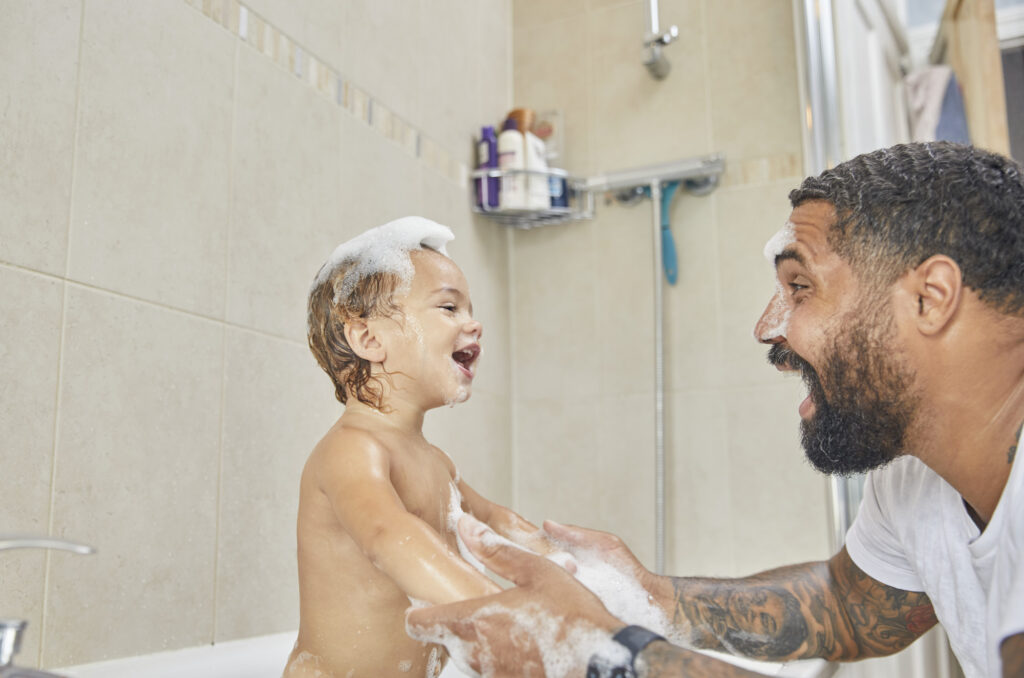
Song traditions – there are things we do every day. Sing the same songs at those moments to explain what you’re doing with your child. Examples could be leaving a room, finishing eating, or washing hands.
The science bit – children love traditions. Singing about your shared daily moments add to the comfort of a known routine. It also helps your child connect these moments and new words. They love learning language from your sing-song voice.
Visit Look Say Sing Play for more information.

